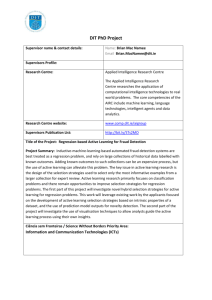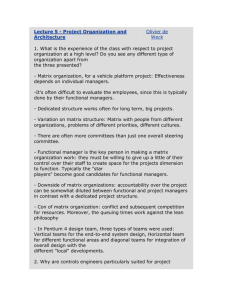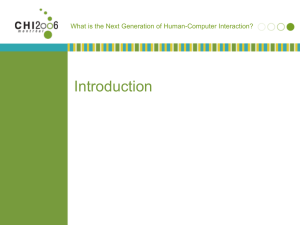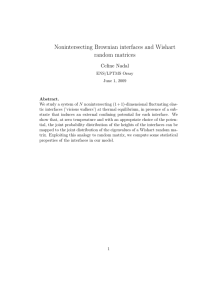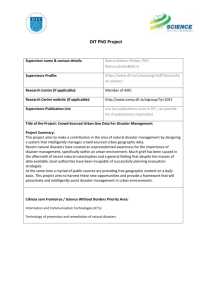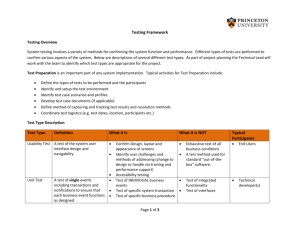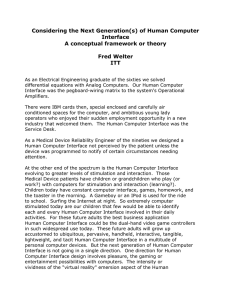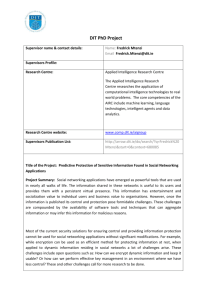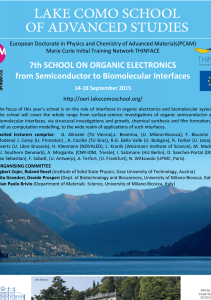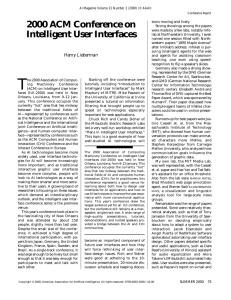CharactAR
advertisement
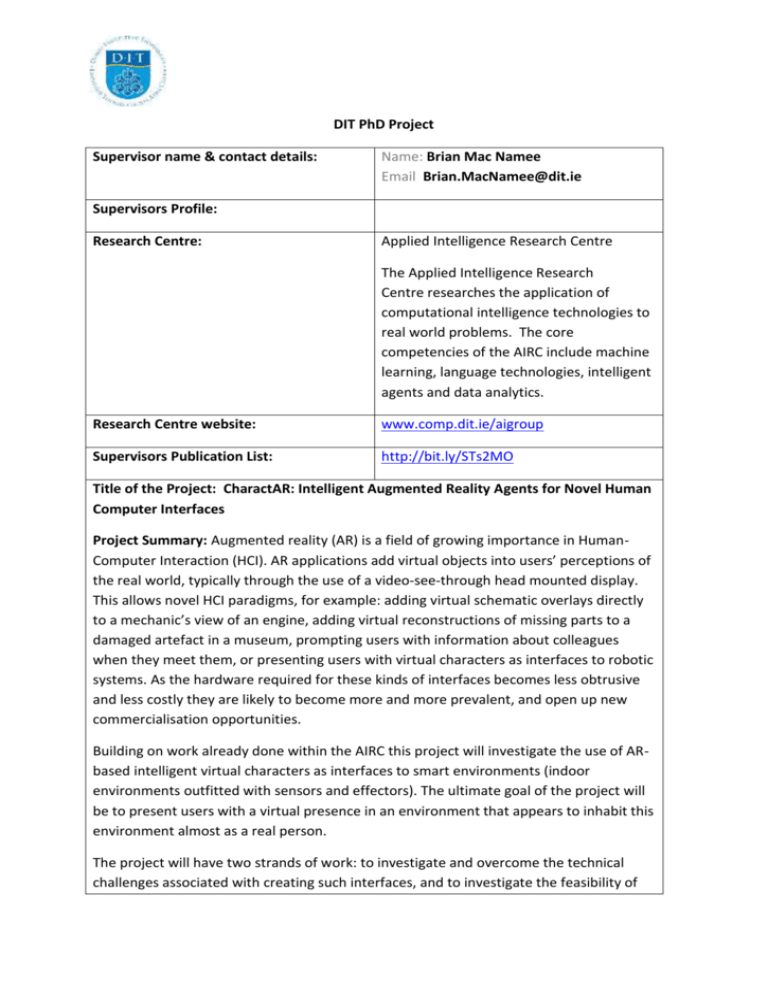
DIT PhD Project Supervisor name & contact details: Name: Brian Mac Namee Email Brian.MacNamee@dit.ie Supervisors Profile: Research Centre: Applied Intelligence Research Centre The Applied Intelligence Research Centre researches the application of computational intelligence technologies to real world problems. The core competencies of the AIRC include machine learning, language technologies, intelligent agents and data analytics. Research Centre website: www.comp.dit.ie/aigroup Supervisors Publication List: http://bit.ly/STs2MO Title of the Project: CharactAR: Intelligent Augmented Reality Agents for Novel Human Computer Interfaces Project Summary: Augmented reality (AR) is a field of growing importance in HumanComputer Interaction (HCI). AR applications add virtual objects into users’ perceptions of the real world, typically through the use of a video-see-through head mounted display. This allows novel HCI paradigms, for example: adding virtual schematic overlays directly to a mechanic’s view of an engine, adding virtual reconstructions of missing parts to a damaged artefact in a museum, prompting users with information about colleagues when they meet them, or presenting users with virtual characters as interfaces to robotic systems. As the hardware required for these kinds of interfaces becomes less obtrusive and less costly they are likely to become more and more prevalent, and open up new commercialisation opportunities. Building on work already done within the AIRC this project will investigate the use of ARbased intelligent virtual characters as interfaces to smart environments (indoor environments outfitted with sensors and effectors). The ultimate goal of the project will be to present users with a virtual presence in an environment that appears to inhabit this environment almost as a real person. The project will have two strands of work: to investigate and overcome the technical challenges associated with creating such interfaces, and to investigate the feasibility of using these kinds of interfaces in the field. The first of these strands will look at issues such as registration of virtual objects with the real world, user tracking, realistic rendering of virtual objects (including occlusion, shadowing, and lighting), and controlling the behaviours of virtual characters and their interactions with users. The second strand will perform user trials in a suitable environment (possibly the DIT campus) to examine how useful such interfaces are, and how much extra benefit they provide beyond traditional approaches. Ciência sem Fronteiras / Science Without Borders Priority Area: Information and Communication Technologies (ICTs)
